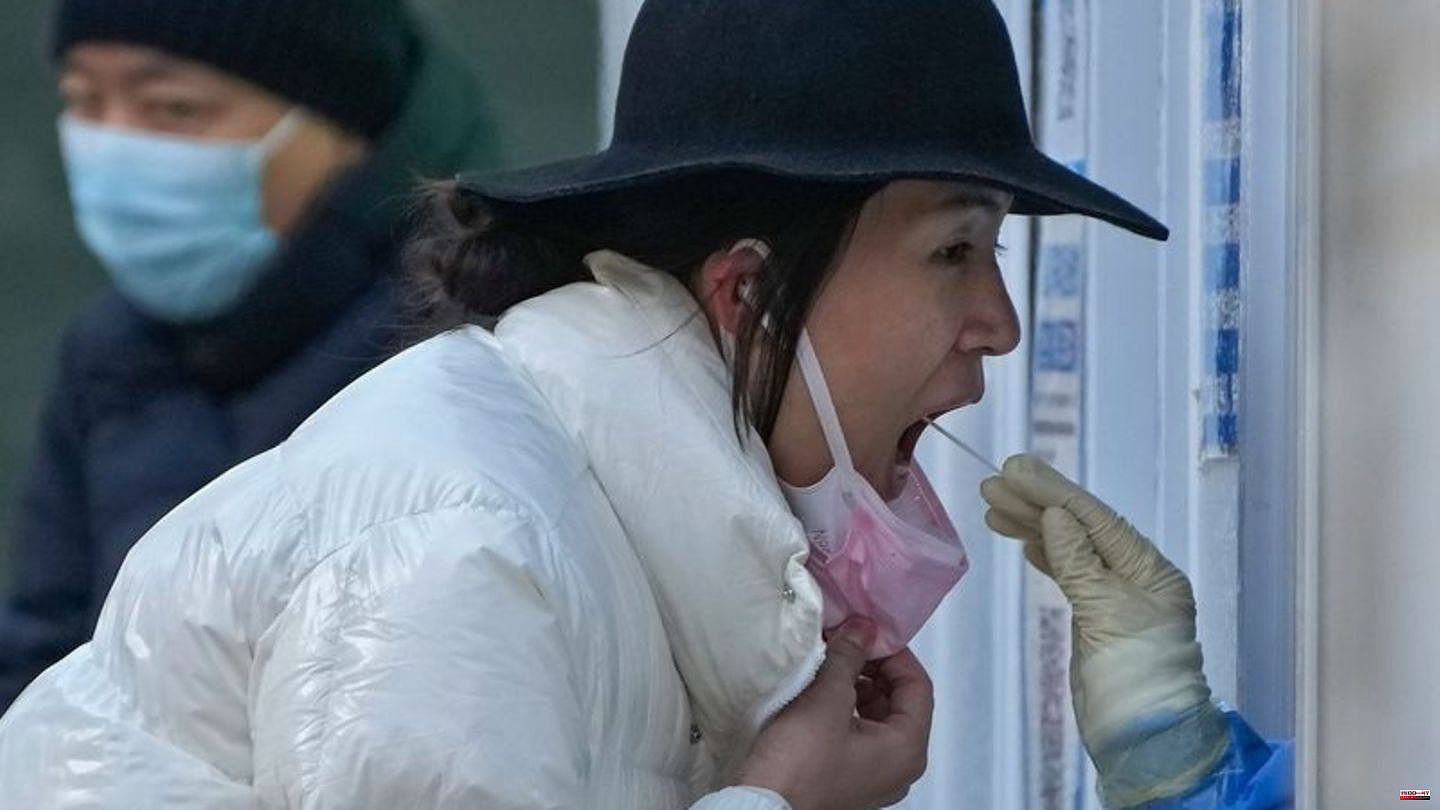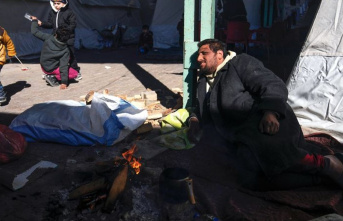After the relaxation of the strict zero-Covid measures in China, experts expect a massive wave of infections. According to a Chinese government advisor, the vast majority of the 1.4 billion Chinese will eventually become infected with the corona virus. The former vice director of the national health agency, Feng Zijian, assumes that 80 to 90 percent of the population will be infected with the virus in the end, state media reported.
In the first wave, the infection rate should reach around 60 percent according to model calculations. "Appropriate measures" would have to be taken to keep the peak of this wave low and reduce the burden on the health system, the government adviser said at an online forum of Beijing's Tsinghua University, according to the newspaper "Zhongguo Qingnianbao".
"Enormous pressure" on medical system
Other experts also warned of a rapid increase in infections. A European health expert in Beijing expects a "race between the virus and vaccinations - with a somewhat unknown outcome in terms of the number of deaths". The peak of the wave will put "enormous pressure" on the medical system, warned Feng Zijian, who advises the government's working group on dealing with the pandemic. Therefore, preparations must be made.
It is important to speed up vaccinations - especially for older people with chronic diseases. The current vaccines are very effective in reducing the risk of serious illness, the government adviser said. Anyone who is not fully vaccinated should do so as soon as possible. Experts also pointed out that for many Chinese people it has been a long time since their last vaccination or booster, which could be a problem.
But flattening the infection curve will also prolong the pandemic, which is likely to put further strain on the economy and people's lives, Feng Zijian said. Every city has to make "compromises" depending on the situation. The expert was among eight experts who advised Vice Prime Minister Sun Chunlan last week before she spoke of a "new stage" in the fight against the virus, which is now "less pathogenic".
Government reversed course
After a wave of protests at the end of November against the draconian zero-Covid measures, the government turned around yesterday and announced far-reaching easing of lockdowns, quarantine rules, mandatory testing and travel in China.
In principle, it should be possible for infected people without symptoms or with a mild course of the disease to go into isolation at home. Even contact persons are no longer threatened with the quarantine camp as before. They should also be able to isolate themselves at home.
The obligation to carry out frequent PCR tests and the constant control of the Corona app for scanning have also been relaxed. Traveling within China no longer requires a negative test or proof of health program safety. Lockdowns should only be imposed on individual buildings, floors or households - and no longer "arbitrarily" extended to entire districts or streets, as the government announced.
Popular resentment and economic strains
Instead of wanting to bring the number of infections to zero with rigorous measures, China will probably try to live with the virus like the rest of the world with these easing. The zero-Covid strategy had caused widespread popular discontent and enormous strains on the second largest economy, while the strict measures against the new, easily transmissible omicron variants of the virus had become less and less effective.
However, international health experts have repeatedly expressed their incomprehension that modern foreign mRNA vaccines are still not approved in China. It was also warned that unlike in many countries, natural immunity among billions of people is not yet present, as there have been relatively few infections in China so far.
According to the Health Commission, around 21,000 new infections were officially reported on Tuesday - the majority asymptomatic. At the end of November, there was a high of 40,000 new cases per day since the beginning of the pandemic.












